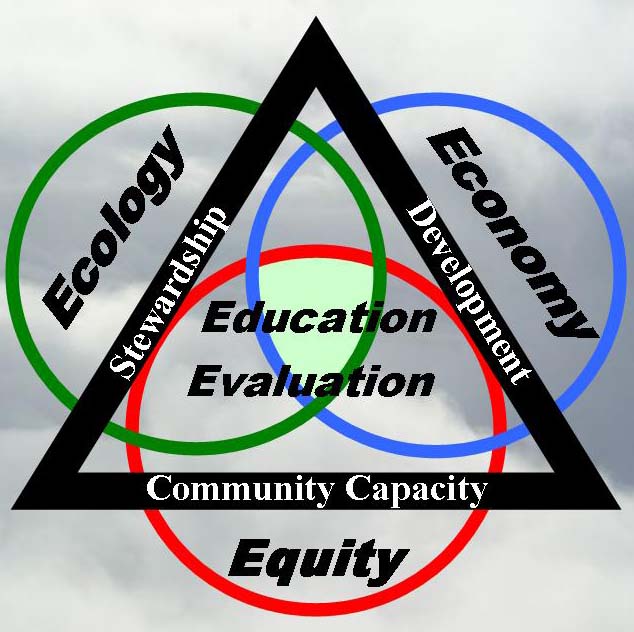|
Even in today’s world of moving away from the traditional “Public
Hearing” to seeking greater transparency and inclusiveness
in new, more widely acceptable forms of public participation,
many designs of public consultation still fall short in achieving
their most important goals. Most often this is directly related
to how the public is drawn to these processes and engaged in
the work.
For
more than 15 years we have offered clients consultative services
in the design and conduct of public participation processes
to assist groups in taking charge of their own destiny and
achieving sustainability goals that they themselves identify
to improve community economic opportunities and social vitality
in environmentally sound ways. We assist groups in taking actions
specifically directed toward community resilience and sustainability.
These actions are founded upon plans initiated, driven, and
completed by the client target group through transparent, consensual,
and inclusive public participation practices that are flexible,
integrated, and provide environmental protection while advancing
the sound and enduring advancement of human communities.
Our team brings a distinctive combination of experience, skills,
and abilities to its work. Our public participation tools and
strategies are specifically designed to encourage collaborative
relationships among ecological, social justice, and economic
development advocates and to assist people in thinking broadly
across disciplines and other boundaries. Our track record indicates
we are successful in helping our clients achieve sound sustainable
development awareness and understanding to provide a solid
foundation for their dialogue, decision-making, and action
planning/implementation through group discussion and consensus
building.
Our public participation
practice is founded upon a foundation of “transformative
facilitation,” which moves the
process of public consultation beyond the perception of the
duality of right versus wrong. Our experiences in applying
transformative facilitation to our own work reinforces our
belief that this form of public participation assistance is
by far the best way to produce a new population of “change
agents” in today’s communities. The greatest triumphs
in science and/or policy-setting for example are not triumphs
of facts but rather triumphs of new ways of seeing, of thinking,
of perceiving, and of asking questions. Through appropriately
facilitated dialogue during public consultation processes,
our many individual perceptions can be coordinated and integrated
into a collective vision of reality. Our intent is to solidify
these foundational perspectives in our trainees.
In our facilitator work
we use the IAP2
Core Values for the Practice of Public Participation as a guide to insure that all the different elements of truly
effective public participation practice are integrated into
our engagement processes. This means that our facilitation
practice addresses the following issues:
- Promise the public’s
contribution will influence the decision
- Those affected by a decision have a right to be involved
- How can participants/stakeholders best participate
- Provide participants with information they need to participate
in a meaningful way
- Recognize and communicate the needs and interests of all
participants
- Involve those potentially affected by or interested in
a decision
- Communicate to participants how their input affected decisions
Our client work in
Alternative Dispute Resolution (ADR) offers public engagement
processes a means
to
effectively guide key determinations
affecting
the participant’s future that otherwise might be cast
away or held captive to unneeded extra discussion and destructive
argument.
ADR leads to better and often quicker decisions, enhanced certainty,
more procedural flexibility, potential cost savings, and other
efficiencies.
- ADR includes a spectrum of techniques involving various
combinations of negotiation, facilitation/mediation,
and evaluation processes to resolve issues in place of traditional
forms of
disagreement.
- ADR involves a third-party neutral (facilitator) who
assists the disputing parties of a group in designing
and conducting a process to find mutually acceptable solutions
to their disputes,
provides advice, or directly resolves the dispute,
depending
on the type of ADR.
- ADR also encompasses consensus-building processes used
to develop policies or regulations or to reach or
influence decisions
involving many different stakeholders.
|

